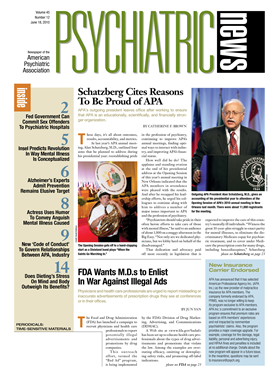After age, the APOE e4 gene variant is the best-established risk factor for late-onset Alzheimer's disease. However, the precise role that the variant plays in Alzheimer's risk for various ethnic groups is still being clarified.
During the past quarter century, a number of scientists have found that people with Alzheimer's have progressive reductions in glucose metabolism in the posterior cingulate, the precuneus, and some parietal, temporal, and prefrontal regions of the brain.
During the past 15 years, scientists have found that cognitively healthy individuals of Caucasian ancestry who carry the APOE e4 variant also experience reduced glucose metabolism in these brain regions.
And now Jessica Langbaum, Ph.D., a staff scientist at Banner Alzheimer's Institute in Phoenix, and colleagues have learned that cognitively healthy individuals of Latino ancestry who have the gene variant also show reduced glucose metabolism in the brain. They reported their findings in the April Archives of Neurology.
The study included 11 cognitively healthy APOE e4 carriers as well as 16 cognitively healthy controls from Arizona's Latino community (mostly Mexican Americans). The two groups were matched on gender, educational level, and family history of dementia. The average age of both groups was 55.
PET scans were used to evaluate the rate of glucose metabolism in various regions of the brain of each subject.
(The use of a small number of subjects, in this case 27, is not uncommon in neuroimaging studies, Langbaum told Psychiatric News. One reason why, she said, is cost. Another is that “we are often able to detect associations and changes with much smaller sample sizes using neuroimaging measures, compared to traditional cognitive or clinical outcome measures.”)
Compared with controls, carriers of the gene variant had a significantly lower rate of glucose metabolism bilaterally in brain regions previously found to be preferentially affected by Alzheimer's, including the posterior cingulate, precuneus, and parietal cortex.
“Our results support the role of APOE e4 in the risk of Alzheimer's disease for Latinos, particularly Mexican-American Latinos, and suggest that the role of many Alzheimer's disease risk factors may be similar for both non-Latino and Latino groups,” Langbaum told Psychiatric News.
“Our results [also] support the inclusion of Latino APOE e4 carriers in our proposed presymptomatic Alzheimer's disease treatment trials,” she added. “At the present, we are preparing for a clinical trial to evaluate the most promising presymptomatic treatments in cognitively healthy late-middle-aged adults who carry two copies of the e4 allele. This study will complement those trials being proposed in other groups at increased risk, such as carriers of genes for early-onset Alzheimer's.”
It is not yet known whether individuals of Asian or African descent who carry the e4 allele also experience reduced glucose metabolism in brain areas often affected by Alzheimer's, Langbaum said.
The study was funded by the National Institutes of Health, the Evelyn G. McKnight Brain Institute, the state of Arizona, the Banner Alzheimer's Foundation, and the Mayo Clinic Foundation.
